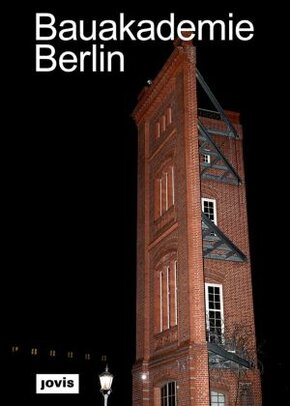| Verlag | Jovis |
| Auflage | 2021 |
| Seiten | 320 |
| Format | 16,1 x 2,8 x 21,8 cm |
| Großformatiges Paperback. Klappenbroschur | |
| Gewicht | 585 g |
| ISBN-10 | 3868597018 |
| ISBN-13 | 9783868597011 |
| Bestell-Nr | 86859701A |
Zweisprachige Ausgabe (deutsch/englisch) / Bilingual edition (English/German)
Armin Linkes Nachtaufnahmen zeigen die Leerstelle der Bauakademie als Teil einer Schinkel-Spur im Berliner Stadtraum: Die rudimentäre Replik der Gebäudeecke provoziert Fragen nach der künftigen Nutzung und Gestalt dieses zentralen Orts. Trotz der gegenwärtigen Bundestagsmehrheit für eine Rekonstruktion der historischen Fassaden - analog zur gerade fertiggestellten Schlosskopie des Humboldt Forums - gibt es unter Architekt_innen und in der Berliner Stadtgesellschaft deutlich differenziertere Vorstellungen zum Umgang mit der Bauakademie. Es regt sich Widerstand gegen eine Vereinnahmung dieser wichtigen Institution und Bauaufgabe durch eine Repräsentationspolitik, die unter dem Motto "So viel Schinkel wie möglich" mehr historische Spuren zu verwischen droht als sie vorgeblich sichtbar machen will. Zu einem kritischen Zeitpunkt liefert Bauakademie Berlin konzeptuelle Perspektiven für eine zeitge nössische Bauakademie in Form von Texten, Architekturzeichnungen und Künstlerfotos.
Mit Texten von Sandra Bartoli, Stefanie Endlich, Philipp Oswalt, Tanja Scheffler, Dubravka Sekulic, Axel Sowa, Stephan Trüby und Andreas Zeese. Fotografien von Armin Linke und Gili Merin
Bilingual edition (English/German) / Zweisprachige Ausgabe (deutsch/englisch)
Armin Linke's night photography reveals the vacancy of the Bauakademie as a trace of Schinkel in Berlin's urban fabric. The rudimentary replica of the corner construction raises questions about the future use and form of this centrally located site. Despite current majority support in Parliament for a reconstruction of the historical envelope analogous to the recently completed Humboldt Forum there are clearly more differentiated ideas among architects and urban society in Berlin about the future of the Bauakademie building. There is strong resistance to the appropriation of this important institution and building task by representational politics, that actually threaten to obscure more historical traces than they are supposed to make visible with the motto "As much Schinkel as possible." At this important moment, Bauakademie Berlin offers conceptual perspectives for a contemporary Bauakadem ie in the form of texts, architectural drawings, and artist's photographs.
With texts by Sandra Bartoli, Stefanie Endlich, Philipp Oswalt, Tanja Scheffler, Dubravka Sekulic, Axel Sowa, Stephan Trüby, and Andreas Zeese. Photographs by Armin Linke and Gili Merin

